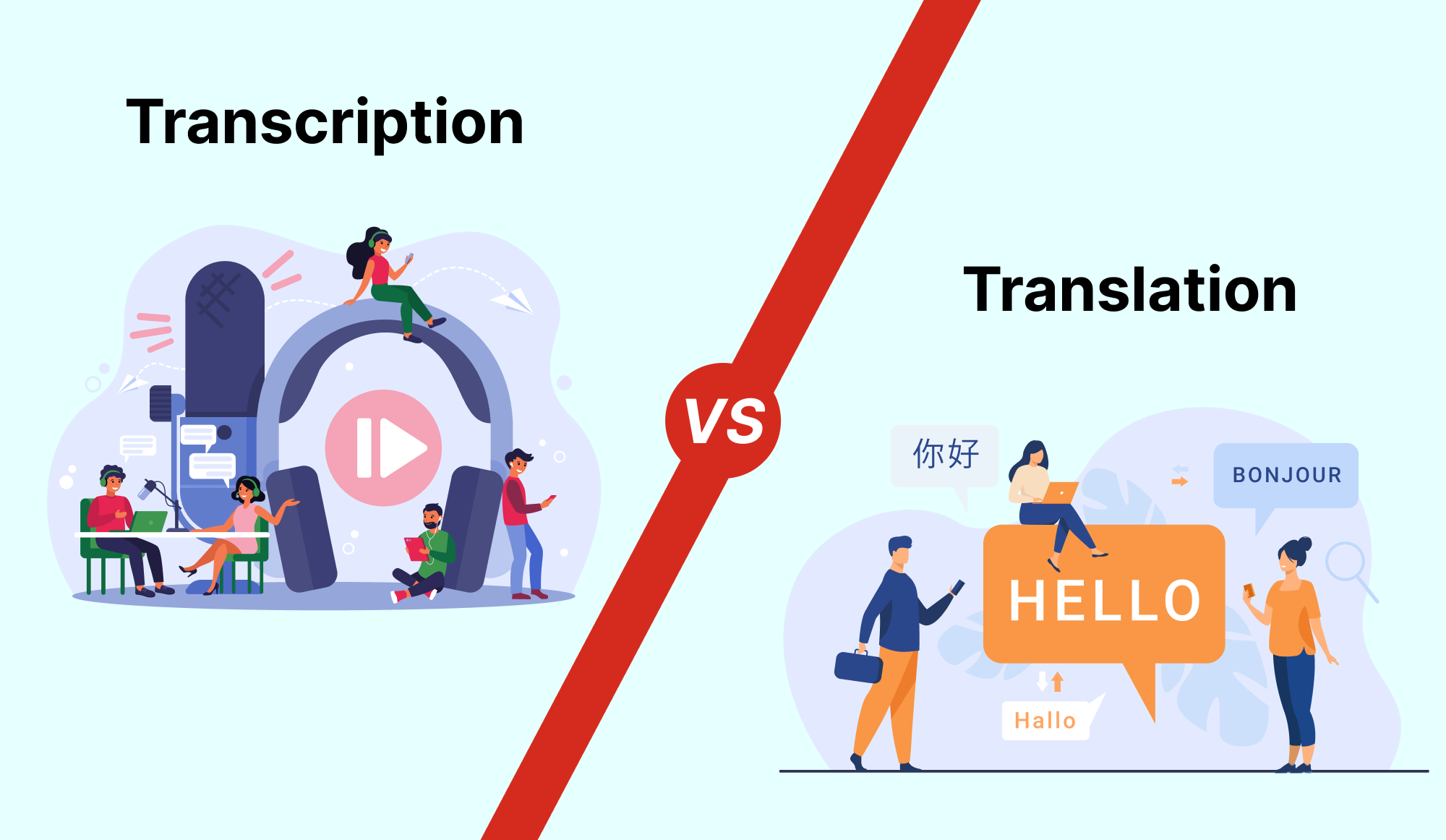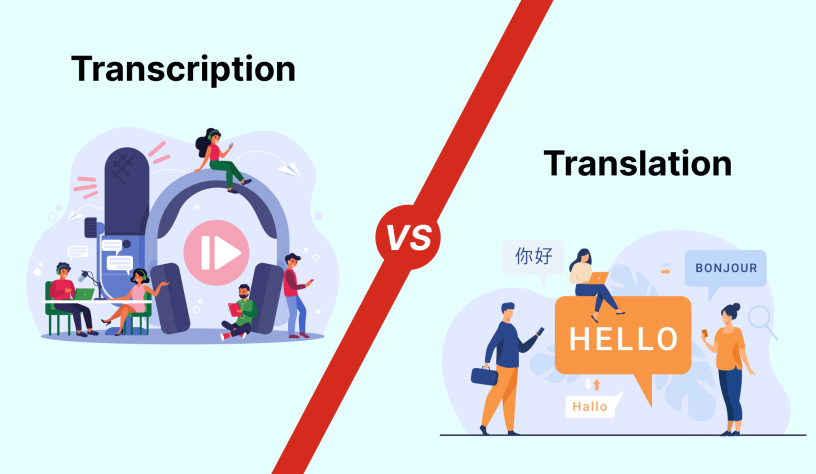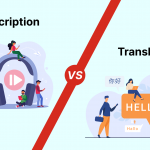
Transcription and translation are two distinct processes that play a crucial role in various industries, including academia, research, legal, medical, and media. While both services aim to convert spoken language into written or another language form, they serve different purposes and require specific skills. Understanding the nuances between transcription and translation, and recognizing their respective applications, is essential for professionals who rely on these services for their work. This article delves into the intricacies of transcription and translation, offering insights into their differences and how services like those provided by Voxtab can cater to the diverse needs of their clients.
What is Transcription?
Transcription is the process of converting speech into a written or electronic text document. This process involves listening to audio or video recordings and accurately typing the spoken words into a text format. Transcription services are crucial for creating accessible and searchable text from lectures, interviews, court proceedings, and more. Accuracy and attention to detail are paramount in transcription, as the text must reflect the original speech with high fidelity. Voxtab, a leading provider of transcription services, specializes in delivering accurate and timely transcriptions, catering to a wide range of fields such as academic research, business meetings, legal cases, and medical consultations. Their expertise ensures that the essence and nuances of the spoken word are preserved in the written document, making information more accessible and usable.
What is Translation?
Translation, on the other hand, involves converting text or speech from one language into another, ensuring that the original message, tone, and intent are maintained in the target language. This process is not just about swapping words between languages but also about understanding and conveying cultural nuances and context. Professional translators must be fluent in both the source and target languages and possess a deep understanding of the cultural aspects that influence communication. Voxtab’s translation services are designed to bridge language barriers in global communications, enabling businesses, researchers, and professionals to reach a wider audience. Their team of expert translators ensures that every translation is culturally relevant and accurate, whether it’s for academic papers, legal documents, medical reports, or any other type of content.
Difference Between Transcription and Translation
While both transcription and translation are vital in global communication and information dissemination, they cater to different needs and follow distinct processes. The key differences between the two are:
- Nature of Conversion: Transcription converts spoken language into text within the same language, focusing on accuracy and fidelity to the original speech. Translation converts written or spoken content from one language to another, prioritizing the preservation of meaning, tone, and context across languages.
- Skills Required: Transcribers must have excellent listening skills, a strong command of the language being transcribed, and the ability to type quickly and accurately. Translators require fluency in both the source and target languages, along with a deep cultural understanding to navigate idiomatic expressions and contextual nuances.
- Applications: Transcription is often used in legal proceedings, medical consultations, academic research, and media production to create accurate records of spoken content. Translation is essential for global communication, enabling content to reach international audiences in business, literature, scientific research, and online content.
Similarities between Transcription and Translation
While transcription and translation are distinct processes with unique purposes, they share some similarities:
- Language Processing: Both transcription and translation involve processing language, whether it’s spoken (transcription) or written (translation). In both cases, individuals need to understand the structure, grammar, vocabulary, and nuances of the language involved.
- Interpretation: Both transcriptionists and translators interpret meaning from the source material. Transcriptionists decode spoken language into written text, while translators decode written or spoken content from one language to another while preserving meaning, tone, and context.
- Attention to Detail: Both tasks require a high level of attention to detail. Transcribers need to accurately capture every word, pause, and utterance in the spoken content, while translators must meticulously convey the original message in the target language, considering linguistic and cultural nuances.
- Communication Aid: Both transcription and translation facilitate communication. Transcription ensures that spoken information is accessible in written form, aiding comprehension and reference. Translation enables information and ideas to be shared across language barriers, fostering global communication and understanding.
- Human Involvement: While technology has advanced in both transcription and translation fields, human involvement remains crucial for ensuring accuracy and quality. Automated tools may assist in both processes, but human oversight is often necessary to handle complex linguistic elements and maintain fidelity to the source material.
Voxtab stands at the intersection of these crucial services, providing both transcription and translation solutions tailored to the specific needs of their clients. Their commitment to quality, accuracy, and customer satisfaction ensures that whether you need to transcribe a series of interviews for research purposes or translate a business proposal for an international client, Voxtab has the expertise and technology to meet your requirements.
In conclusion, both transcription and translation play pivotal roles in our increasingly interconnected world. While transcription ensures that spoken words are accurately captured in written form, translation bridges the gap between languages, making content accessible and understandable to a global audience. Voxtab’s comprehensive services in both domains exemplify their dedication to facilitating communication and information exchange across borders. By leveraging the expertise of professional transcribers and translators, Voxtab empowers individuals and organizations to effectively communicate their ideas and information, regardless of the language or format. Understanding the distinctions and applications of transcription and translation is essential for anyone looking to navigate the complexities of global communication in the 21st century.








Share your thoughts